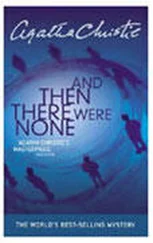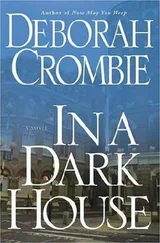***
She just couldn't figure out what made her new neighbor tick. Betty, her name was, Betty Thomas. If you spoke to her, she smiled and answered in her soft Caribbean accent, but that was all. If you tried to continue the conversation, she'd dig her toe in the pavement and look away, and after a minute you'd give up.
The father was an upholsterer, she'd learned that much, and the family came from Trinidad, in the West Indies. They kept themselves to themselves, but sometimes on the warm evenings she could smell their cooking, so different from the food her own family ate.
The summer days were warm and long, the air filled with the smell of the moldering rubbish that piled up on the pavements, and the rats grew fatter than the neighborhood cats. She took to gazing out her window, elbows on the sill, making up stories to herself about the Thomases and a rather pimply boy across the street called Eddie Langley. Everyone else she knew had to share a bedroom with brothers and sisters or grandparents, sometimes even aunts and uncles, but that only made her feel lonelier. Her mother hadn't been able to have any more children because of some sort of female problem that was never properly explained, and her grandparents had died in Poland during the war.
She felt connectionless, as if her little family had failed to pass some basic but secret test. She began to imagine that she was adopted, that somewhere she had another family, not Polish, not Jewish, and much more glamorous than the family in which fate had chosen to place her. Taking refuge in the library, she devoured biographies of film stars and long romantic novels with invariably tragic endings. In that way the summer passed, and it was not until the start of school in the autumn that she thought much about Betty Thomas again.
The previous year the old school on Portobello Road had been reorganized as boys only and renamed Isaac Newton. Girls were shunted out of the neighborhood to the comprehensive in Holland Park, and she and Betty Thomas were placed in the same class.
It seemed only natural that the girls should fall in together on the long walk home that first day, silently at first, then in desultory conversation.
"She's all right, don't you think, the new teacher?" Betty offered in her soft voice. "But the subjects, we did them two years ago in Trinidad."
"What's it like there? Trinidad."
"Warm. Like this, but more so, all the time. But a lot of the folks are poor, and my daddy, he thought he could do better here. Now he says we shoulda stayed at home."
"Do you want to go back?"
Betty shrugged. "Not for me to say."
"There are some nice things here," she said, feeling a bit defensive. "And school will be easy for you if you've already done the subjects." It was a clear day, just hot enough to make the pleated woolen uniform skirt itchy on bare thighs, and as they walked on she began to perspire. "It's not fair, the boys getting to stay at the old school. And my mother wouldn't give me bus fare, said she wouldn't waste the money when I had two good feet."
"My mother said I mus' be havin' a fever to even think such a thing." Betty rolled her eyes in imitation, and both girls giggled.
Emboldened, she asked, "Why won't you ever talk to me at home?"
"Your family don't like coloreds living next door. Though my daddy, he says the Polish Jews are better than some."
"It's not that they don't like it," she said, torn between embarrassment and a desire to defend her parents. "It's just that they're afraid of trouble, like what happened over in Elgin Crescent last year. But I don't really see what that has to do with us."
Betty gave her a skeptical glance. "You don't mind if the other kids in the neighborhood won't talk to you?"
Shrugging, she answered, "I'm used to being alone. And besides, I'd rather talk to you."
They walked in silence for a bit, then Betty stopped and looked full at her, as if she'd come to a decision. "When I saw you, that first day, I thought you looked like the painting of an angel they had in our old church, in Trinidad."
"Me? An angel?" No one had ever said anything like that about her before. Her oval face was ordinary; her soft brown hair neither strikingly blond nor brunette; her eyes were too pale for beauty. A warm glow began in her midriff and spread outwards. "I wish I could see the painting," she said wistfully.
"Oh, she is that lovely, with her sweet face and the sky all blue and gold behind her. Of course," Betty gave her a sly smile, "I don't know if you wanna be that good. Or if your mother and father, they would let you go in a Catholic church."
"No, and no," she answered, laughing.
"I think I'm going to call you that. Angel. It suits you."
"Angel," she repeated, trying it out on her tongue, liking the sound, and the image of the painting in her mind.
And so she became Angel, to Betty, to Betty's brother, Ron, and to all the friends that came after. This small thing constituted not only the cementing of her friendship with Betty, but the beginning of an identity that would separate her finally from her family. What she didn't realize was that the image of the angel in the painting would stay with her long after she had lost touch with all who had known her by that name.
Opinions vary as to the start of the antiques trade in Portobello Road. One theory is that when the Caledonian Market, well known in prewar days as the place to buy a secondhand wardrobe or bedstead, closed in 1948, some of the displaced antique stalls set up in Portobello Road.
– Whetlor and Bartlett,
from Portobello
Gemma checked the address of Dawn Arrowood's friend in the A to Zed she kept in her car, locating the flat near the South Ken tube station. Near enough that she thought she would drive there unannounced, and informal enough to justify her going alone.
The rain began to slacken as she pulled away from the station, and it seemed natural to her that she should drive down the hill and stop for a moment in front of the house on St. John's Gardens.
It looked larger than she remembered from the previous eve-ning. More solid and prosperous. She thought of her parents' flat over the bakery, the cheap digs she had shared with a friend in her first days on the force, the tatty semidetached in Leyton she had bought with Rob, and now her tiny garage flat. Doubt flooded through her. Was she up to this house, with the expectations and commitment it represented?
Then she thought of her friend Erika Rosenthal's home a few blocks away, and of the sense of contentment and homecoming she'd experienced in those rooms. It came to her that with this house she was being offered a chance to create that life for herself; she would be a fool to pass it by.
She closed her eyes, gathering herself for her next task, and in that instant she had a vision. Distant and silent, as if viewed through the opposite end of a telescope: They were all together in the house, she and Kincaid, the boys, and a child whose face she could not see. The image vanished as abruptly as a bubble popping, but the sense of home and family stayed with her like a half-remembered dream.
***
Natalie Caine lived in a garden flat in Onslow Gardens. It was a chic address and the flat's entrance reflected it: shining paint and polished brass, flanked by perfect topiaries set in large Italian pots. The sound of a television came faintly from within. Gemma lifted the knocker and rapped lightly.
A woman opened the door so quickly that Gemma decided she must have been expecting someone else. Tall, slightly heavyset, with pale olive skin and a mass of frizzy dark hair pulled back with an oversized clip, she looked as if she had been crying. "Oh," she said, her brow creasing as she studied Gemma. "I thought you were someone come about the telly. But you're not, are you?"
Читать дальше












